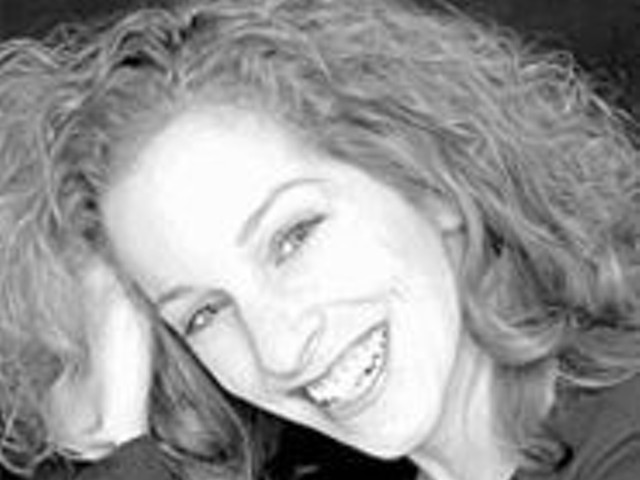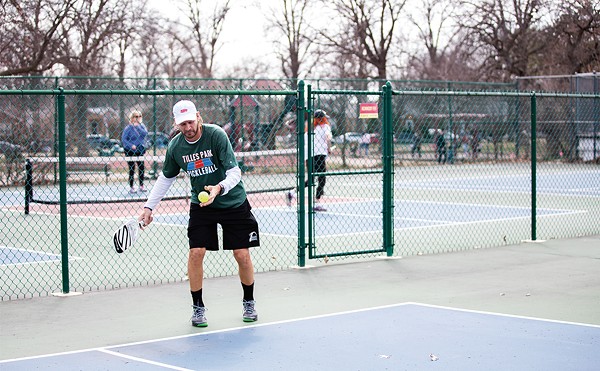Miller, a model of casual chic in gray slacks, a tan shirt and two-toned shoes, exposes more than just her mastectomy scar in her 60 minutes onstage. Ostensibly a play about surviving breast cancer, My Left Breast is really a series of poetic riffs on loss of all kinds: lost love, lost children, bone loss and the loss of structure (both real and narrative). It's heady and complex -- like jazz -- and you've got to let it wash over you and take you where it wants to go. You can't fight it or ask questions.
Working the crowd like a standup comic, Miller starts the evening with a series of memories about her left breast: the first time a boy touched it, her son's reaction when she told him that it had been removed. But the show quickly moves to its central concern: Miller's love of a woman named Franny and the eventual demise of their eight-year relationship. Like a stone dropped in water, the loss of Franny ripples in waves that connect to other losses: her infant son, her left breast, her sense of control, her image of herself. "You say goodbye to the person that you were," she realizes. This saying goodbye is an ongoing process. At each life transition, we become someone else; our children and our parents become other people.
It's all potential Hallmark card stuff, but Miller keeps it real. Her memory of dropping her son off at college links to her memory of dropping him off at day camp, which connects to instantly recognizable parental fears, which takes her back to the day she brought him home from the hospital. Her son says he still remembers "how it was to be carried home."
The strength of Miller's writing is her ability to connect a series of events with a lasting image. The missing left breast becomes emblematic of all her losses. A novel that never got finished is stored in a pink suitcase, an image of unfulfilled dreams. Salty pictures of death -- from dying wasps to earthquakes to a corpse's feet sticking out from under a blanket -- contrast with sweet memories of making love, getting her son to wear a jockstrap and watching Little League games. Those baseball games, she tells us, were the cure for her cancer. Participating in her son's sports, being in a community of parents and children -- those things made her well again.
Miller moves nimbly from one memory to another, hardly pausing to let the audience catch its breath. She often reports on the situations with little emotional involvement, an observer of her former self. Her movements between a desk, a chair and a set of bleachers are sometimes random and distracting, a product of previous performances that no longer seems fresh. Miller wrote My Left Breast ten years ago, and it's hard not to wonder if she hasn't done precisely what she talks about in the play -- said goodbye to that decade-old self and moved on to other concerns. The contrast between the highly emotional situations described in the play and Miller's often cool performance is jarring, a dissonant note in this marvelous collage of metaphor and memory.
The final image of the play is Miller's mastectomy scar, which she describes as "a line that suggests my beginning and my end." Reminding survivors everywhere that "we are still beautiful and we are still here," she unbuttons her blouse and shows her scar. It's a remarkable moment of courage, capping an evening of brave revelations. My Left Breast is more than the personal story of a "one-breasted, bisexual, menopausal Jewish lesbian Mom." It's a human story of loss and survival. It's about all of us.





